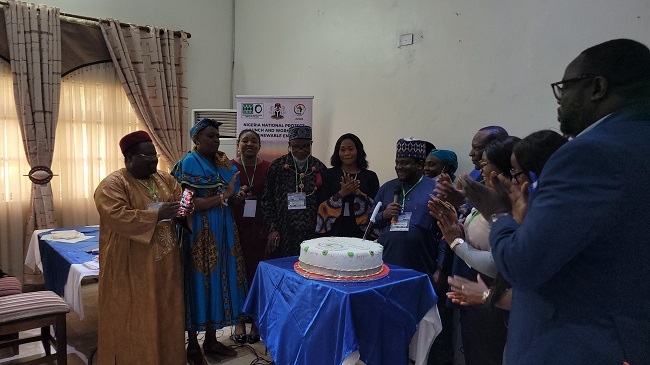The Africa Coalition for Sustainable Energy Access (ACSEA) and the Pan African Climate Justice Alliance (PACJA) on Tuesday, April 19, 2022, launched the Nigeria platform for a people-centred energy transition project in Africa.

The three-year project is being implemented in four other countries namely Kenya, Botswana, Cameroon and Morocco.
ACSEA National Coordinator for Nigeria, Dr Godwin Uyi-Ojo, said that, through the ACSEA Nigeria platform, a Just Energy Transition movement building for energy transition would be made possible.
Uyi-Ojo said it was worrisome that there was low participation of civil society and non-state actors in decision making processes on renewable energy transition.
According to him, there is need for capacity building and training for civil society to have a strong voice in the decision making process and influence policy change for renewable energy.
“The aim of ACSEA is to ensure that Just Energy Transition occur within an improved energy access. However, there is low participation in the decision making process on renewable energy initiatives.
“Therefore, the prime focus of the project is the promotion of renewable energy access in Nigeria. In general, clean energy access is limited due to energy poverty.
“The ACSEA project launch is important to address issues of energy governance to allow for decentralised energy systems that are socially driven and promotes community energy in all systems,’’ Uyi-Ojo said.
He said that only through decentralised energy systems that energy poverty could best be tackled and solved, while calling for continuous training of capacity for local manufacturing of renewable energy gadgets.
Uyi-Ojo said this would promote technological advancement in the renewable energy sector and the generation of green jobs through greener technologies to prevent Africa from becoming a dumping ground for all sorts of technologies.
ACSEA Programmes Director, Mr Eugene Nforngwa, said the project would strengthen civil society’s role in promoting and implementing sustainable energy transition initiatives and influence policy development in the five countries.
Nforngwa said Africa had the lowest energy access rate in the world saying energy access was thus a policy priority for many governments and development actors.
According to him, renewable energy remains the best chance to fill such gap, while minimising potential emissions from the sector, adding that current initiatives are uncoordinated and lack broad-based participation.
“A strong civil society movement is crucial in minimising risks, increasing access for the poor and securing emission reductions is critical.
“Renewable energy should be at the centre of any efforts to make energy accessible, Africa is not fully exploring other options, only Kenya and south Africa are making efforts,’’ Nforngwa said.
Mr Ahmed Nagode, Director General, National Power Training Institute of Nigeria, said there was need for reducing greenhouse gas emissions when seeking access to renewable energy options.
Nagode said the civil society organisations and community-based organisation have huge roles to play in sustainable renewable energy processes.
According to him, building skills acquisition in the energy sector would help to create opportunities for the youth.
By Tosin Kolade
